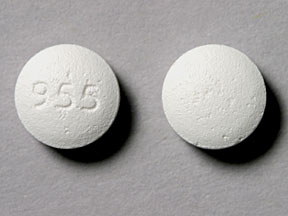
Famotidine Coupons & Savings Card – Discount Prices from $4.48
Generic for: Pepcid, Pepcid ac, Ra acid reducer
My prescription
Edit
20MG, Famotidine (60 Tablets)
Select pharmacy

CVS
$19.56
COUPON PRICE
Walmart
$4.48
COUPON PRICE
Walgreens
$10.92
COUPON PRICE
Albertsons
$15.12
COUPON PRICEFamotidine savings card
Show this card to your pharmacist
Walmart
$4.48
BIN
ID
PCN
GRP
019876
LHE2C0AFCB
CHIPPO
LHX
Powered by
More prescriptions for heartburn
More prescriptions for heartburn
Price history for Famotidine Orig St (brand) & Famotidine (generic)
60 Tablets, 20MG
Average retail price for Famotidine Orig St
Average retail price for Famotidine
Average SaveHealth price for Famotidine
Our price history data is based on aggregated prescription data collected from participating pharmacies in America. Our prescription data updates daily to reflect the latest price changes. If you notice a missing data point, it means there wasn't sufficient data available to generate a monetary value for that date.
We analyzed Famotidine prices for (20MG, 60 Tablets) over the last 12 months. The average retail price was $88.67, while the average price using the SaveHealth discount card was $11.88. That's a savings of approximately 86.60% when using our Famotidine coupon.
Compared to the generic version, Famotidine Orig St had an average price of $16.25 over the same time period. With the SaveHealth savings card, Famotidine is 26.89% cheaper on average than Famotidine Orig St.
*Retail prices are based on pharmacy claims data, and may not be accurate when we don't have enough claims.
Famotidine Maximum Strength (Famotidine) dosage forms
Dosage Quantity Price from Per unit 10MG 30 Tablets $11.58 $0.39 10MG 60 Tablets $14.17 $0.24 10MG 100 Tablets $24.69 $0.25 10MG 500 Tablets $61.05 $0.12 10MG 1000 Tablets $104.10 $0.10 20MG 60 Tablets $4.48 $0.07 20MG 1 Tablet $2.53 $2.53 20MG 2 Tablets $2.57 $1.28 20MG 6 Tablets $2.70 $0.45 20MG 10 Tablets $2.83 $0.28
| Dosage | Quantity | Price from | Per unit |
|---|---|---|---|
| 10MG | 30 Tablets | $11.58 | $0.39 |
| 10MG | 60 Tablets | $14.17 | $0.24 |
| 10MG | 100 Tablets | $24.69 | $0.25 |
| 10MG | 500 Tablets | $61.05 | $0.12 |
| 10MG | 1000 Tablets | $104.10 | $0.10 |
| 20MG | 60 Tablets | $4.48 | $0.07 |
| 20MG | 1 Tablet | $2.53 | $2.53 |
| 20MG | 2 Tablets | $2.57 | $1.28 |
| 20MG | 6 Tablets | $2.70 | $0.45 |
| 20MG | 10 Tablets | $2.83 | $0.28 |
| 20MG | 14 Tablets | $2.96 | $0.21 |
| 20MG | 20 Tablets | $3.16 | $0.16 |
| 20MG | 25 Tablets | $3.33 | $0.13 |
| 20MG | 30 Tablets | $3.49 | $0.12 |
| 20MG | 33 Tablets | $3.59 | $0.11 |
| 20MG | 40 Tablets | $3.82 | $0.10 |
| 20MG | 50 Tablets | $4.15 | $0.08 |
| 20MG | 90 Tablets | $11.97 | $0.13 |
| 20MG | 100 Tablets | $12.30 | $0.12 |
| 20MG | 120 Tablets | $12.96 | $0.11 |
| 20MG | 180 Tablets | $20.30 | $0.11 |
| 20MG | 200 Tablets | $20.89 | $0.10 |
| 20MG | 270 Tablets | $22.96 | $0.09 |
| 20MG | 300 Tablets | $23.84 | $0.08 |
| 20MG | 500 Tablets | $29.74 | $0.06 |
| 20MG | 720 Tablets | $36.22 | $0.05 |
| 20MG | 800 Tablets | $38.58 | $0.05 |
| 20MG | 1000 Tablets | $44.47 | $0.04 |
| 40MG | 1 Tablet | $2.56 | $2.56 |
| 40MG | 7 Tablets | $2.94 | $0.42 |
| 40MG | 14 Tablets | $3.37 | $0.24 |
| 40MG | 15 Tablets | $3.43 | $0.23 |
| 40MG | 20 Tablets | $3.75 | $0.19 |
| 40MG | 30 Tablets | $4.37 | $0.15 |
| 40MG | 50 Tablets | $5.61 | $0.11 |
| 40MG | 60 Tablets | $6.24 | $0.10 |
| 40MG | 90 Tablets | $14.60 | $0.16 |
| 40MG | 100 Tablets | $15.23 | $0.15 |
| 40MG | 120 Tablets | $16.47 | $0.14 |
| 40MG | 180 Tablets | $24.35 | $0.14 |
| 40MG | 270 Tablets | $29.03 | $0.11 |
| 40MG | 300 Tablets | $30.59 | $0.10 |
| 40MG | 500 Tablets | $40.80 | $0.08 |
| 40MG | 800 Tablets | $49.50 | $0.06 |
| 40MG | 1000 Tablets | $55.30 | $0.06 |
